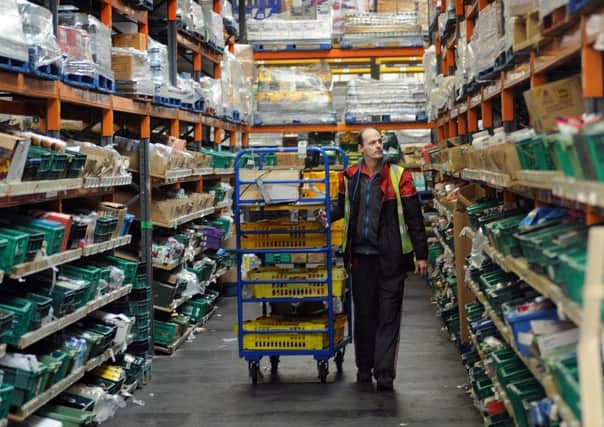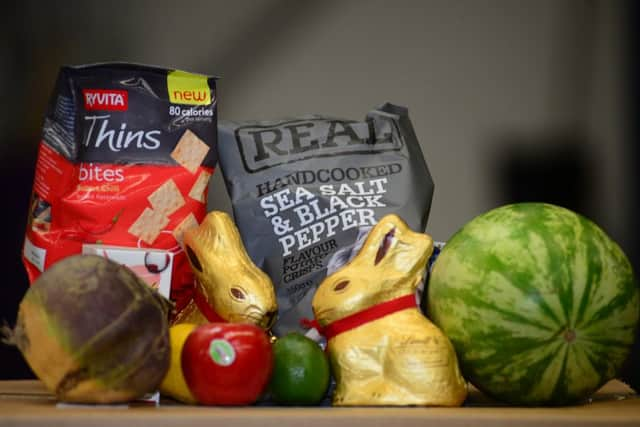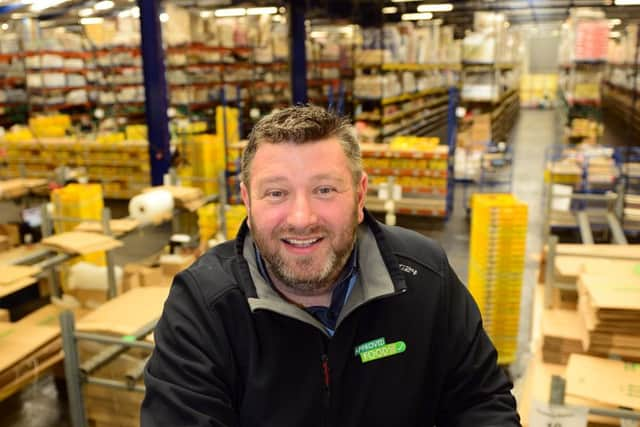Confusion over food labels cost families fortune


CONFUSION OVER food labelling is costing Yorkshire families hundreds of pounds a year as they needlessly throw away perfectly edible food, new research has found.
A staggering 60 per cent of people in Yorkshire admit to throwing away food nearing or on its best before date because of a fear of getting ill – and now a Sheffield-based online retailer has launched a new campaign, #PerfectlyGood, to educate the public that dating labels do not make food a “ticking time-bomb”.
Advertisement
Hide AdAdvertisement
Hide AdApproved Foods is also calling on the Government to make food dating clearer as customers battle against an array of dating labels, including best before, use-by, display until, sell-by and expiry date..


Its research found that almost a third of Yorkshire shoppers have confused use-by and best-before dates and thrown away food as a result, and more than 66 per cent who had thrown away food that is approaching or on its best before date did so without testing the quality first.
The founder of Approved Foods, Dan Cluderay said: “The confusion is leading to unsustainable food waste levels – seven million tonnes of food is wasted in Britain alone every year, and something needs to be done about it.”
Approved Foods was founded in 2008 by former market trader Mr Cluderay and has grown to be the largest online-only retailer of short-dated and residual food and drinks.
Advertisement
Hide AdAdvertisement
Hide AdIt works with food manufacturers and suppliers to provide an outlet for perfectly edible produce and goods that would otherwise end up in landfill, and has sold more than 32m items. Mr Cluderay believes educating the public on the meaning of food labelling could save British shoppers £50m a year.


He said: “I have been selling food close to its best before date for 16 years and every year the issue comes up, nothing happens.
“There needs to be clarity on this and the Government needs to be leading the way and changing laws.
“Food is not a ticking time bomb that will go off when it reaches its best before date – it’s a steady decline in quality.
Advertisement
Hide AdAdvertisement
Hide Ad“If people were more confident about what these labels meant, they could save money and save perfectly good food from ending up in landfill.”


Best before dates indicate quality, while use-by dates, which are more commonly found on meat and dairy produce, indicated the date at which the food is no longer safe to eat.
Most recent figures from the Love Food Hate Waste campaign suggest £1.1bn of food in Yorkshire is thrown away each year, with the average family wasting more than £518 a year. Of the 7m tonnes of food thrown away nationally each year, it is thought that 60 per cent is edible.
Defra last updated its guidelines to manufacturers and retailers in 2011.
Advertisement
Hide AdAdvertisement
Hide AdA spokesperson for the department said it was working with the industry to improve packaging, products and guidelines to help consumers save money and avoid waste.


Last year Secretary of State Liz Truss said she was not averse to eating food that was past its best before date, saying she would “see if it smells OK and eat it”.
In October, Bradford-based supermarket Morrisons announced it would become the first supermarket in the UK to voluntarily donate all of its waste food to charity after a successful trial in 112 stores in Yorkshire and the North East.
Mr Cluderay added: “As a culture we’ve become attached to these dating labels but with the recession hitting and people wanting to cut back, there have been massive attitude changes.
Advertisement
Hide AdAdvertisement
Hide Ad“The stigma that was once there is gradually being removed but some people are still wary and they need educating on what makes food safe.”
From its 60,000sq ft warehouse in Sheffield, Approved Foods ships 45,000 hand-picked items a day.
Through its website, it sells everything from tinned artichoke hearts and extra virgin olive oil to toilet rolls, toothpaste and even chocolate bunnies, with an average saving of 70 per cent.
Founder Dan Cluderay said its approach was reducing food waste two fold – by reducing the amount of food going from manufacturers and suppliers to landfill, and encouraging and educating customers on food labelling to ensure there is less waste in the kitchen. He added: “We want people to stop and think before they throw food away.”